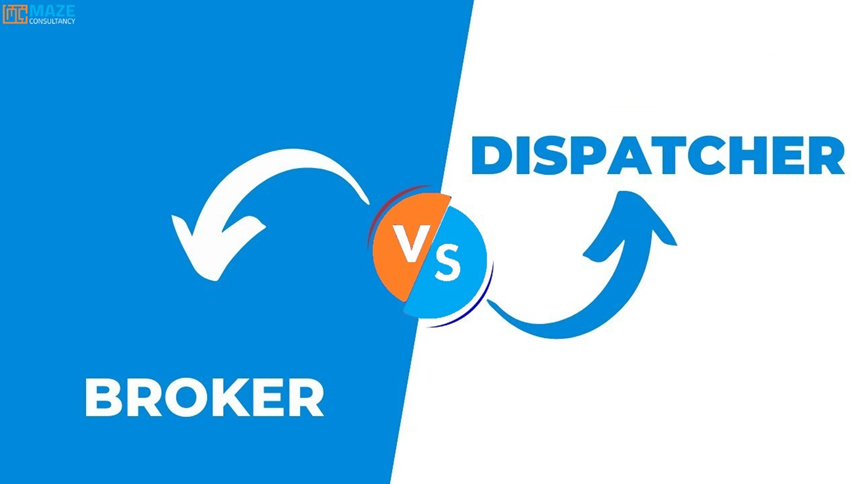Dispatchers are vital professionals in a range of industries, serving as the linchpins that ensure smooth and efficient operations. Their role involves managing and coordinating resources, services, or personnel to achieve optimal efficiency and effectiveness. Each industry has its own unique requirements and challenges for dispatchers, making their work both diverse and critical. This essay explores the multifaceted role of dispatchers across different sectors, highlighting their importance and the skills required to excel in these positions.
Emergency Services Dispatchers
One of the most crucial roles of dispatchers is within emergency services. These dispatchers, often referred to as 911 operators, are the first point of contact when individuals call for urgent assistance. Their primary responsibility is to assess the nature and urgency of the emergency, gather pertinent information from the caller, and dispatch the appropriate emergency response teams, such as police, fire, or medical services.
Emergency services dispatchers operate under intense pressure. They must quickly determine the severity of the situation, prioritize calls, and provide clear instructions to callers who may be in distress. Their ability to stay calm and focused is essential, as their decisions directly impact the speed and effectiveness of the response. They use specialized communication systems to relay information to responders and coordinate resources efficiently. The role requires exceptional multitasking skills, a deep understanding of emergency protocols, and the ability to handle stressful situations with composure.
Transportation and Logistics Dispatchers
In the transportation and logistics sector, dispatchers are responsible for coordinating the movement of vehicles and shipments. They manage schedules, handle delays, and ensure that deliveries are made on time. Whether it’s a fleet of trucks, buses, or trains, dispatchers play a critical role in optimizing routes, managing load distribution, and communicating with drivers.
For example, in the trucking industry, dispatchers track the location of each vehicle, manage driver assignments, and address any issues that arise during transit, such as vehicle breakdowns or route changes. They work closely with drivers to provide updates on traffic conditions, weather, and any other factors that might affect travel. Effective communication and problem-solving skills are crucial, as dispatchers must respond to unforeseen challenges and adjust plans accordingly to minimize disruptions.
Public Utilities Dispatchers
Public utilities dispatchers oversee the distribution and maintenance of essential services such as electricity, water, and gas. They manage service requests, coordinate repair crews, and monitor systems for potential issues or outages. Their role is vital in ensuring that utility services are delivered reliably and efficiently.
When an outage occurs or a service request is made, utilities dispatchers are responsible for dispatching repair crews and managing the response. They use sophisticated monitoring systems to track utility infrastructure and identify problems before they escalate. Dispatchers must possess strong organizational skills to manage multiple tasks simultaneously, as well as a thorough understanding of utility systems and procedures. Their ability to quickly mobilize resources and communicate effectively with both the public and field personnel is essential in maintaining service reliability and addressing emergencies.
Field Services Dispatchers
Field services dispatchers work for companies that provide on-site services, such as repairs, installations, or maintenance. They are responsible for scheduling appointments, assigning jobs to technicians, and managing service routes. Their role ensures that field service operations are conducted efficiently and that customer needs are met in a timely manner.
For instance, a field services dispatcher might schedule a technician to repair a malfunctioning appliance. They need to consider the technician’s location, skills, and availability, as well as the customer’s location and preferred appointment time. Effective communication is crucial, as dispatchers must relay detailed job information to technicians, handle any rescheduling or cancellations, and address any issues that arise during the service visit. They also need to ensure that technicians have the necessary tools and parts to complete their tasks. The role demands strong organizational abilities, attention to detail, and the capability to handle logistical challenges.
Manufacturing and Production Dispatchers
In manufacturing and production environments, dispatchers oversee the scheduling and coordination of production runs. They manage inventory levels, ensure that materials are delivered to the production line on time, and address any disruptions that may impact the production schedule.
Manufacturing dispatchers need to coordinate with various departments, including procurement, production, and logistics, to ensure a seamless workflow. They must manage production schedules, monitor inventory levels, and adjust plans based on changes in demand or supply chain issues. Effective problem-solving skills are essential, as dispatchers must address any issues that arise, such as equipment malfunctions or delays in material delivery, to minimize production downtime. Their role is integral to maintaining efficient operations and meeting production targets.
Essential Skills and Qualities
Regardless of the industry, dispatchers must possess several key skills and qualities to perform their roles effectively. These include:
- Communication Skills: Dispatchers must communicate clearly and effectively with various stakeholders, including emergency responders, drivers, field technicians, and customers. Their ability to convey information accurately and promptly is crucial for successful coordination and problem-solving.
- Organizational Abilities: Managing multiple tasks, schedules, and resources requires strong organizational skills. Dispatchers must keep track of numerous details simultaneously and prioritize tasks to ensure efficient operations.
- Problem-Solving Skills: Dispatchers often face unexpected challenges and must think quickly to find solutions. Their ability to analyze situations, make informed decisions, and adapt to changing circumstances is essential.
- Multitasking: Dispatchers frequently handle several tasks at once, from managing schedules to responding to emergencies. Their capacity to multitask effectively is vital for maintaining smooth operations.
- Calmness Under Pressure: Especially in high-stress situations, such as emergencies or production disruptions, dispatchers must remain calm and focused to make sound decisions and manage the situation effectively.
In conclusion, dispatchers are essential to the smooth functioning of various industries, from emergency services to manufacturing. Their roles are diverse but united by the need for effective coordination, communication, and problem-solving. The skills and qualities they bring to their positions are crucial for ensuring that operations run efficiently and that services are delivered reliably.ressure nature of their roles.
























